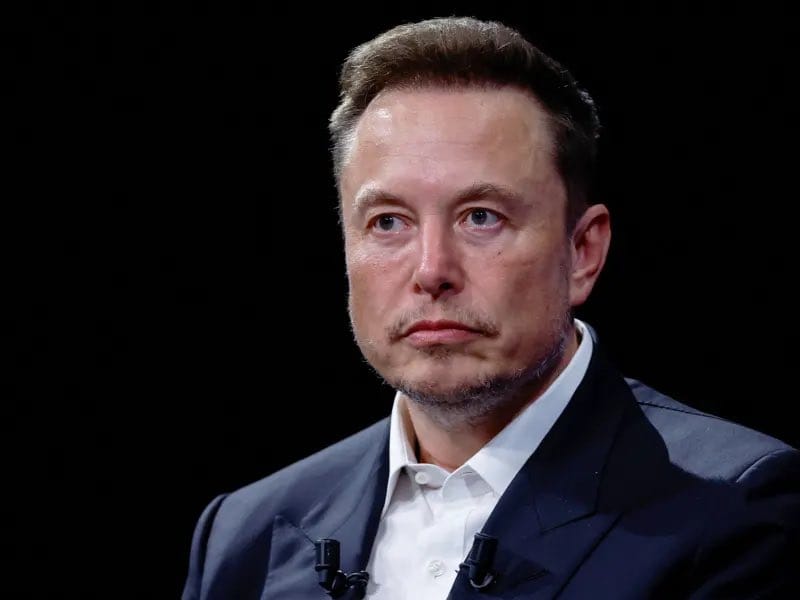- Elon Musk, a figure synonymous with innovation in technology, space exploration, and now government efficiency, has taken a bold step into the political arena by announcing through his Department of Government Efficiency (DOGE) that the U.S. Department of Education (DoE) no longer exists. This announcement, made via a tweet and reported by MSNBC, has ignited a firestorm of discussions, debates, and speculation across various platforms, from social media to policy think tanks. While Musk's statement might seem like a direct action, the reality is more complex due to the legal and political frameworks surrounding the establishment and operation of federal departments. The DoE, established to promote student achievement and ensure equal access to education, cannot be dissolved by executive decree; such a drastic change would require an act of Congress, as noted by legal experts and historical precedents.
This move by Musk, however, reflects a broader trend of questioning the efficiency and necessity of federal agencies, particularly in the context of political promises to reduce government size and influence. During his presidency, Donald Trump had repeatedly voiced intentions to dismantle the DoE, suggesting that education should be a state and local matter rather than a federal one. Musk's involvement, alongside Trump's administration, through DOGE, signals a strategic alignment where technology and business acumen are being leveraged to influence government operations. The DOGE team, under Musk's leadership, has reportedly gained significant control over administrative functions within the DoE, accessing sensitive information and potentially setting the stage for operational changes even if not outright dissolution.
The implications of Musk's announcement are multifaceted. On one level, it underscores a growing skepticism towards federal involvement in education, with critics arguing that the DoE has overreached, imposing one-size-fits-all policies that don't necessarily cater to the diverse educational needs across states. On another level, it raises concerns about the future of federal programs like Title I, which funds schools with high numbers of low-income students, and the management of federal student loans, which has been a contentious issue, especially with recent debates over loan forgiveness. The potential dismantling or restructuring of the DoE could lead to a reallocation of these responsibilities, possibly to other departments or to state governments, each scenario carrying its own set of challenges and opportunities.
Moreover, Musk's involvement brings a unique angle to the debate. Known for his disruptive approach in Tesla and SpaceX, Musk's strategy in government reform could involve leveraging technology for efficiency, transparency, and perhaps even privatization of certain educational services. This could mean introducing AI-driven educational tools, blockchain for secure student records, or even exploring educational models that are more in line with Silicon Valley's innovation-centric culture. However, this tech-first approach also brings concerns about data privacy, educational equity, and the potential for widening the digital divide, as not all students or schools have equal access to technology.
The reaction from the educational community, policymakers, and the public has been mixed. Advocates for smaller government and less federal oversight applaud Musk's initiative, seeing it as a step towards more localized control over education, which they argue could lead to more tailored and effective educational policies. Critics, however, are wary of the loss of federal oversight which has historically been crucial in enforcing civil rights in education, ensuring accessibility for students with disabilities, and providing a safety net for disadvantaged groups through funding and policy. There's also a fear that without a centralized body like the DoE, the consistency and standards of education across the country might suffer, leading to a patchwork of educational quality dependent on state resources and priorities.
The conversation around Musk's announcement also touches on the broader implications of influential tech figures entering the political and administrative spheres. Musk's move is not just about education; it's a test case for how tech leaders might reshape government functions, bringing efficiency and innovation but also potentially disrupting established norms and protections. This has led to discussions in academic circles about the role of private sector influence in public policy, the ethics of such involvement, and how to balance innovation with the democratic principles of accountability and public interest.
Legally, the path to actually dissolving the DoE remains fraught with challenges. Historical attempts to eliminate federal departments have often faced significant resistance in Congress, where both parties have members who see value in federal oversight of education. Furthermore, the DoE's role in administering large-scale programs like Pell Grants, whichSorry about that, something didn't go as planned. Please try again, and if you're still seeing this message, go ahead and restart the app.Post


